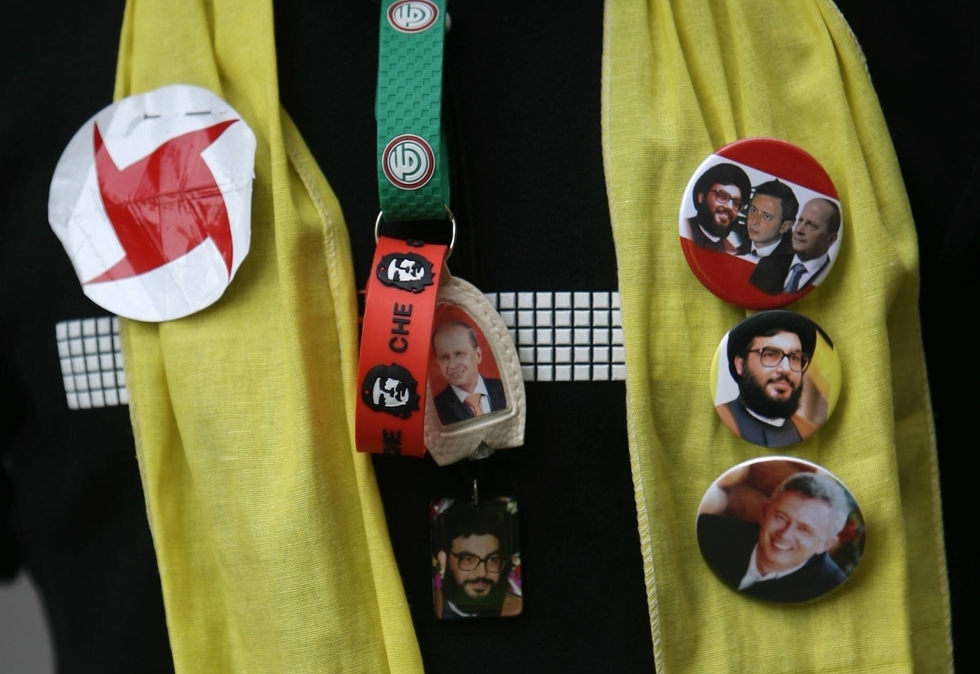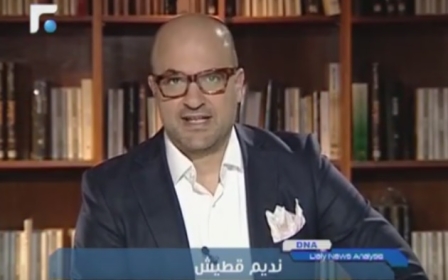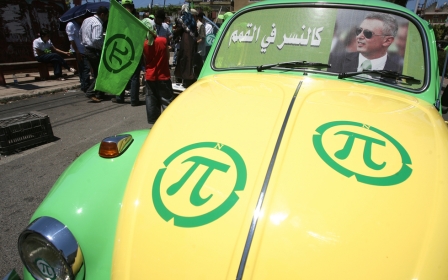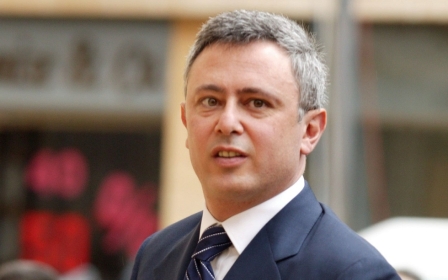Assad and Frangieh: The farcical repetition of Lebanese history

Lebanon’s chronically divided political landscape has seen a breakthrough in the last week. Over a year has passed without a president. The divided parliament failed to agree on a successor to Michel Sleiman after his term expired in May 2014 despite 32 attempts to convene and elect a new one.
But a new consensus appears to be emerging after the Saudi-backed Saad Hariri met Syrian President Bashar Assad’s fiercest ally and Marada movement leader Suleiman Frangieh in Paris. The Hariri-Frangieh agreement would see Hariri returning as prime minister and Frangieh filling the presidential vacuum.
Astonishingly, Saudi Arabia has welcomed the initiative, with the kingdom's ambassador to Lebanon, Ali Awad Asiri, saying: "We bless this step."
From Riyadh to Vienna, conferences across the world are held almost simultaneously to find a solution for the war in Syria. Global and regional powers are stuck in a political deadlock resulting from years of disjointed foreign policy, unabated meddling in Syrian affairs by regional powers, and unaccountable atrocities by the Syrian regime.
As Syria is torn between redundant conferences abroad, recent developments in Lebanon hint at major compromises by regional powers that will ultimately shape the future of Syria in a farcical repetition of history.
Frangieh in Lebanon and Assad in Syria
In 1970, Suleiman Frangieh's grandfather, also called Suleiman, became the president of Lebanon after a tight voting drama decided by the vote of the late minister and leader of Lebanon’s Socialist Progressive Party, Kamal Jumblatt. Today, Suleiman Frangieh’s grandson, Suleiman, is being suggested as potential candidate for presidency by former prime minister Saad Hariri and Druze leader Walid Jumblatt.
The former is the son of the late Lebanese Prime Minister Rafik Hariri, who was assassinated, probably by the Syrian regime, a decade ago. The latter, Walid Jumblatt, is the son of Kamal Jumblatt, who is also thought to have been killed by the Syrian regime. The sons of both assassinated leaders blatantly accuse the Syrian regime of killing their fathers.
Adding to this patrimonial irony, the election of Suleiman Frangieh senior in 1970 was sponsored by the Syrian regime led by the late President Hafez Al-Assad, while today’s arrangement is expected to please Assad’s son who has held on to his throne in Syria despite a popular uprising.
Today, Saudi-affiliated Hariri’s initiative to name Assad’s ally in Lebanon, Frangieh, for presidency couldn’t have happened without regional and even international consent. The process of getting Frangieh to the presidential palace will also require intensive diplomacy and compromises by all sides; something that is highly likely yet extremely uncertain.
Regardless of the uncertainties, such a scenario will prove to be devastating for both Lebanon and Syria in different ways, primarily in securitising the politics of Lebanon in favour of Damascus and repositioning Beirut in Assad’s circle of influence.
Lebanon’s role in Syria war
Lebanon has been pivotal for both Syrian rebel groups and the Syrian regime. Its borders with Syria have provided safety routes for rebels, and its abandoned valleys have been used as training grounds for fighters. Lebanon’s decade-long civil war left behind experienced warlords and war entrepreneurs who saw in Syria an opportunity to re-invest in the war economy, not to mention a handful of well-established foreign intelligence units.
Long-abandoned arms trade channels with Eastern Europe were revived. Drugs were swiftly smuggled in tonnes across borders. More detrimentally, Hezbollah fighters joined the war in their thousands. Over a million Syrian refugees fled to Lebanon. Syria’s neighbour has been part of the war in all but name.
Having said that, the politics of both countries are intertwined. The nomination of Frangieh for presidency, Assad’s childhood friend, reaffirms this reality.
'Brothers' in arms
Two main statements made by Frangieh sum up his views on the presidential crisis in Lebanon. Firstly, Frangieh reiterated several times that the current political circumstances require a consensual president. Secondly, he stated that any prospective president has to be accepted by Assad, his childhood friend.
Suleiman Frangieh proudly states that Assad is a “brother”. Their families were not only political allies, but they also built close friendly ties. This was carried on from one generation to another. If regional and international powers consent to Frangieh’s bid for presidency, over a million Syrian refugees will fall under the mercy of tight security cooperation between the Lebanese and Syrian intelligence.
Damascus’s 30-year presence in Lebanon ended a decade ago, after mass protests following the assassination of Rafik Hariri. But, as Marx says, the possibility of having Frangieh in office could see history repeat itself “first as tragedy and second as farce”.
- Ibrahim Halawi is a London-based researcher and a PhD candidate at Royal Holloway University of London. His research focuses on power dynamics and counter-revolution in the Arab World. He has published contributions on Political Islam in the context of the Arab Spring and the geopoliticial challenges to secularism in the Arab World. Also, he founded a secular student-run newspaper in Lebanon.
The views expressed in this article belong to the author and do not necessarily reflect the editorial policy of Middle East Eye.
Photo: A Lebanese protester wears a yellow Hezbollah scarf with a portrait of its leader Hassan Nasrallah in addition to pins bearing the symbols or pictures of various Lebanese groups and leaders, including Suleiman Frangieh and Michel Aoun, as well as Cuba's Argentinian revolution leader Ernesto "Che" Guevara" in Beirut 7 December 2006 (AFP).
Middle East Eye propose une couverture et une analyse indépendantes et incomparables du Moyen-Orient, de l’Afrique du Nord et d’autres régions du monde. Pour en savoir plus sur la reprise de ce contenu et les frais qui s’appliquent, veuillez remplir ce formulaire [en anglais]. Pour en savoir plus sur MEE, cliquez ici [en anglais].





